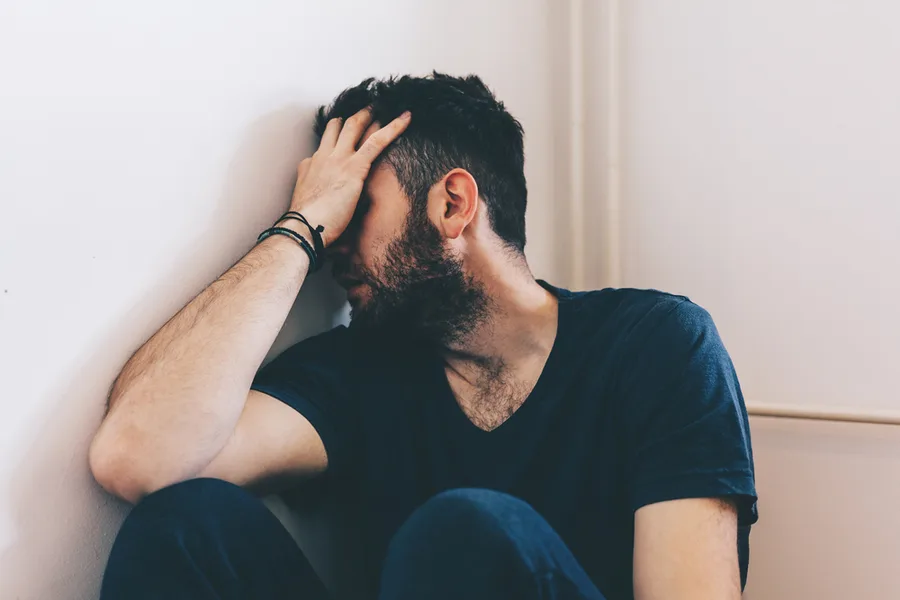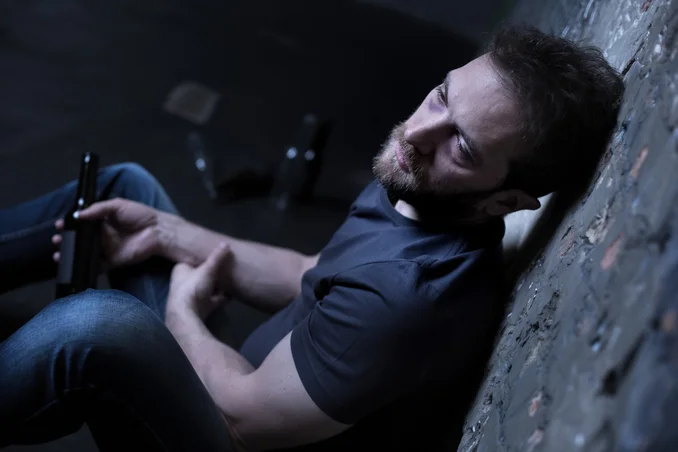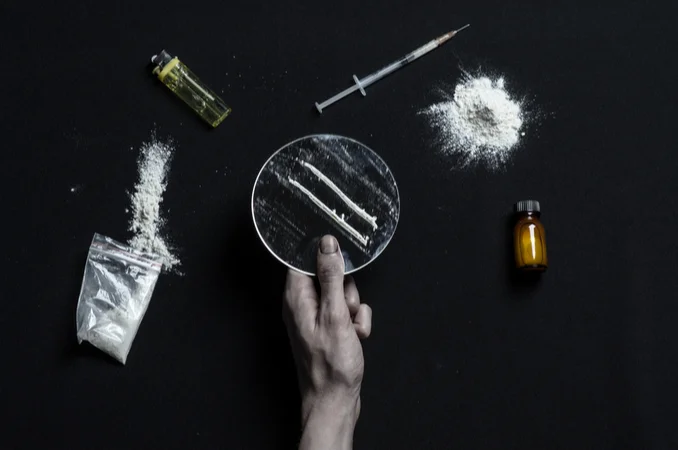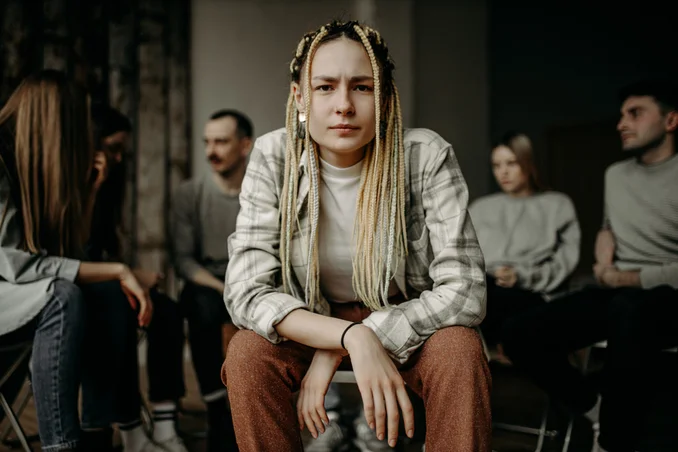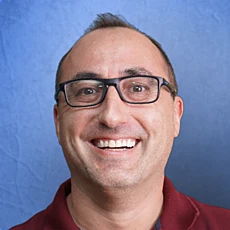Addiction Treatment Options
Table of Contents
- Addiction Treatment Options
- Alcohol Addiction Treatment
- Drug Addiction Treatment
- Amphetamine Addiction Treatment
- Barbiturate Addiction Treatment
- Benzodiazepine Addiction Treatment
- Cocaine Addiction Treatment
- Crack Addiction Treatment
- Heroin Addiction Treatment
- Opiate Addiction Treatment
- Sleeping Pill Addiction Treatment
- Dual Diagnosis Treatment
- Medically Reviewed By
Addiction treatment options usually focus on getting addicts sober and averting relapses. Depending on the type of addiction, whether it is drug and alcohol-based, or with a dual diagnosis component as well, the client can benefit from one of the following levels of treatment options:
Alcohol Addiction Treatment
About Alcohol Addiction
The terms alcohol addiction, alcohol use disorder, and alcoholism are usually used interchangeably. These terms are used to refer to recurring alcohol consumption that leads to clinically considerable impairment as well as the inability to meet duties. The types of alcohol addiction are classified as young adult subtype, young antisocial subtype, functional subtype, intermediate familial subtype, and chronic severe subtype.
Signs of Alcohol Addiction
Alcohol addiction might be hard to recognize but it’s often recognized by these signs: increased frequency and quantity of use, lack of “hangover” signs, drinking at the wrong time, wanting to be near alcohol, choosing friends who drink heavily, avoiding interaction with family, hiding while drinking, dependence on alcohol to work, increased emotional issues, and professional or legal problems.
Types of Alcohol
Every alcoholic has a drink of choice. It might be wine, beer, or liquor. Alcohol addiction encompasses addiction to every type of alcohol and it might be mild, moderate, or severe (depends on the diagnostic criteria the addict meets – mild meets 2 to 3, moderate meets 4 to 5, while severe meets above 6).
How Alcohol Addiction is Treated
Many people think that alcohol addiction treatment involves only the well-documented 12-step programs or 28 days of inpatient rehab and don’t know about the other options. On the contrary, there are dozens of treatment options available such as Detoxification, Counseling, Behavioral Treatments, Medications, and Mutual-Support Groups, thanks mainly to the advancement in the field over the past 6 decades. Ultimately, there is no one-method-fits-all treatment, and what might work for client A might not work for clients B and/or C.
Types of Alcohol Addiction Treatment
There are different types of alcohol addiction treatment programs. They include but are not limited to, Inpatient Detox Programs, Inpatient Treatment Programs, Sober Living House, Luxury Treatment Programs, and Executive Treatment Programs.
What to Expect During Alcohol Addiction Treatment
Upon entering alcohol addiction treatment, the client will undergo a complete diagnostic assessment that will result in a personalized treatment plan. The results will be used to decide the types, level, as well as the intensity of services that will be received.
See what rehabs your insurance covers.
Drug Addiction Treatment
About Drug Addiction
Drug addiction, also called substance use, is a condition where an individual continues to use a drug despite its negative effect. Drug addiction affects the behavior and the brain of the user.
Signs of Drug Addiction
Symptoms of drug addiction include cravings, physical dependence, tolerance, withdrawal symptoms, poor judgment, drug-seeking, financial trouble, and neglected responsibility.
Types of Drug
There are seven types of drugs. They are depressants, stimulants, dissociatives, hallucinogens, inhalants, opioids, and cannabis.
How Drug Addiction is Treated
Drug addiction treatment might include behavioral, medications therapies, or both. It is offered at different treatment centers that offer pharmacological and behavioral approaches.
Types of Drug Addiction Treatment
Once a person overcomes reservations and is ready for treatment, he/she must choose between inpatient or outpatient residential programs. This will be the primary type of their treatment.
What to Expect During Drug Addiction Treatment
Clients should expect therapy and speakers who share personal stories and bring hope to them. They will also be taught how to deal with drugs and avoid relapses.
Amphetamine Addiction Treatment
About Amphetamine Addiction
Amphetamine is an artificial stimulant-type drug or medication. Amphetamine addiction excites or stimulates the central nervous system, which leads to a feelings of confidence, focus, higher energy, and even euphoria.
Signs of Amphetamine Addiction
It is important to note that all amphetamine addicts don’t display the same symptoms but the common ones are mood symptoms such as euphoria, anxiety, and depression. Behavioral symptoms present as an increase in energy, a decrease in appetite, and improved memory. Physical symptoms can present as tolerance, addiction, and headache. Psychological symptoms can manifest as delusions, aggression, and hallucinations.
Types of Amphetamine
Multiple prescription drugs contain amphetamine or its 2 active elements, Dextroamphetamine and levoamphetamine, including Adderall, Vyvanse, Dexedrine, and Generic ADHD drugs. Dextroamphetamine is stronger than levoamphetamine, and other known drugs are Methamphetamine and Molly or MDMA.
How Amphetamine Addiction is Treated
Research shows that it takes at least three months of treatment for amphetamine addicts to reduce and stop using amphetamine, although the desired results occur after a long duration at a treatment center.
Types of Amphetamine Addiction Treatment
What is critical is to get a treatment center that deals with the client’s personal needs and any co-occurring disorder such as depression or anxiety. With that said, the main types of treatment include Inpatient Treatment, Outpatient Treatment, Intensive Outpatient, Partial Hospitalization, 12-Step Program, and Mental Health Treatment.
What to Expect During Amphetamine Treatment
Amphetamine treatment centers are designed to help the patient learn how to recover and overcome the psychological and physical problems related to amphetamine addiction. Clients can expect an assessment, medical detox, rehab treatment (psychotherapy, pharmacotherapy, and education sessions), and aftercare services.
Barbiturate Addiction Treatment
About Barbiturates Addiction
A barbiturate is a sedative-hypnotic drug that was once used as a sedative or anti-anxiety drug. These drugs are addicting because they slow the central nervous system and causes a feeling of relaxation. It is similar to alcohol and makes the user feel happier and more sociable.
Signs of Barbiturates Addiction
The symptoms of barbiturates addiction are straightforward if a person consumes too much of these drugs. They include difficulty thinking, slow talking, poor judgment, lethargy, shallow and slow breathing, and poor coordination.
Types of Barbiturates
Barbiturates, also called sleeping pills, come in three main types: powder, pills, and capsules. They can be injected or swallowed and are often referred on the street as barbs or downers.
How Barbiturates Addiction is Treated
The treatment of barbiturates addiction should be supportive. The support needed will depend on the individual’s symptoms. For instance, a drowsy person might need just to be watched closely while severe cases require to be taken in hospital emergency department observation.
Types of Barbiturates Treatment
Barbiturates addicts will require clinically-supervised detox. Here, they will get medical care to monitor their bodily functions, such as breathing and heart rate, and to ensure they stay safe while their bodies cleanse themselves of the dangerous toxins gained during use. Rehab centers have effective clinically-supervised detox and offer medication as required to help suppress the uncomfortable and painful signs of abuse.
What to Expect During Barbiturates Addiction Treatment
An addict should expect barbiturate detox, residential treatment, and aftercare services. Of course, treatment will vary from one client to another.
Benzodiazepine Addiction Treatment
About Benzodiazepine Addiction
Benzodiazepines, also known as benzos are prescription medicines that slow down various activities in the central nervous system to provide relief from anxiety, sedation, and relaxation. Although they have a calming effect, benzos are quite addictive and an individual who abuses them portrays a number of symptoms.
Signs of Benzodiazepine Addiction
Some of the psychological, behavioral, and physical signs of these drugs include weakness, drowsiness, doctor shopping, blurred vision, mood changes, and poor thinking or judgment.
Types of Benzodiazepine
The five most commonly used types of benzos are Temazepam (Restoril) Clonazepam (Klonopin), Alprazolam (Xanax), Diazepam (Valium), and Lorazepam (Ativan).
How Benzodiazepine Addiction is Treated
Benzodiazepine addiction treatment includes professional counseling and therapy for both mental and physical health. There are different approaches used and no single program works for all clients.
Types of Benzodiazepine Addiction Treatment
The three major types of benzos treatment are detox and medical stabilization, substance abuse rehabilitation, aftercare, and relapse prevention. However, this will depend on the design and details of a rehab center as there are specific types of treatment used in specific centers.
What to Expect During Benzodiazepine Addiction Treatment
Once stabilized, the client continues his/her recovery through outpatient or inpatient programs that provide cognitive counseling and therapy sessions. Many centers offer comfortable surroundings and a home-like environment, so clients can heal in soothing and safe places.
Cocaine Addiction Treatment
About Cocaine Addiction
Cocaine is a drug that works to increase the availability of the neurotransmitter dopamine in the brain. This element, dopamine, leads to the creation of euphoric emotions and the regulation of movement. It is also linked to the abuse of cocaine.
Signs of Cocaine Addiction
The signs of cocaine addiction include effusive enthusiasm, increased agitation, disinhibition, changes in focus, concentration, signs of involuntary movements, and increased movement.
Types of Cocaine
The main types of cocaine are crack cocaine, freebase cocaine, and hydrochloride.
How Cocaine Addiction is Treated
Although there are no FDA-approved drugs for treating cocaine addition, it has been shown that a combination of pharmaceutical and behavioral treatments may prove to be effective in treating cocaine addicts.
Types of Cocaine Addiction Treatment
There are lots of options available for treating cocaine addicts including detox clinics or cocaine addiction treatment centers, clinical psychiatrists or psychologists, cocaine addiction support groups, and personal physicians.
What to Expect During cocaine Addiction Treatment
Going through a rehab center doesn’t automatically lead to a successful recovery. Clients need to go through a therapy that deals with the cause of their cocaine abuse, be taught new life skills, and even be prepared to confront future relapse.
Crack Addiction Treatment
About Crack Addiction
Crack is a crystal or solid form of cocaine. It comes in crystals or solid blocks of varying colors from white to pale rose to yellow. It is heated and smoked and produces a popping or cracking sound when heated.
Signs of Crack Addiction
Signs of crack addiction include dilated pupils, increase heart rate, insomnia, loss of appetite, weight loss, uncontrolled muscle tics, and hypertension.
How Crack Addiction is Treated
Crack treatment begins by breaking the craving for the drug. It involves stopping the intake of the drug in a treatment center to avoid the dangerous withdrawal effect.
Types of Crack Addiction Treatment
Clients addicted to this drug have a good chance of recovery while detoxing at a treatment facility. These treatments are run by physicians and therapist who treats each person based on his/her need and uses cognitive behavior therapy or group therapy to treat the individual.
What to Expect During Crack Addiction Treatment
Clients should expect lots of group work including education and counseling, in gender-separated groups. Other things to expect include support group attendance, group counseling, and regular meals. There are also individual sessions.
Heroin Addiction Treatment
About Heroin Addiction
Heroin is an opiate that stimulates feelings of pleasure and elation that users get addicted to. The adverse effects of abuse and use of heroin are quite harmful and too serious to ignore.
Signs of Heroin Addiction
The symptoms of heroin use include depression, mood swings, euphoria, anxiety, agitation and irritability, paranoia, weight loss, hallucinations, delusions, and disorientation.
Types of Heroin
The major types of heroin are black heroin, brown heroin, white heroin, and tar heroin.
How Heroin Addiction is Treated
Every person is different and individual needs must be considered before deciding on the treatment plan. Heroin addiction treatment plans always involve detox in a treatment center as well as other processes.
Types of Heroin Addiction Treatment
Different types of treatment are offered for heroin, including both pharmacological and behavioral treatments. Both restore normalcy to the behavior and brain of the client.
What to Expect During Heroin Addiction Treatment
Clients should expect detox and addiction treatment when in a treatment center. They should also expect to get lessons on sober living.
Opiate Addiction Treatment
About Opiate Addiction
An opiate is a drug used to treat pain and is extracted from the opium plant. It is highly addictive, so it poses the danger of opiate addiction to any individual who uses it for a long time.
Signs of Opiate Addiction
The signs of opiate addiction can be psychological, behavioral, and physical. They include poor coordination, nausea, drowsiness, constipation, slow breathing rate, irritability, mood swings, depression, and slurred speech.
How Opiate Addiction is Treated
Detox followed by education, counseling, individual and family therapy, and support groups might help a person to stop using opiates and remain sober.
Types of Opiate Addiction Treatment
There are different types of opiate addiction treatments. All fall into three categories: non-medicated residential services, medicated residential treatment, and medicated outpatient treatment.
What to Expect During Opiate Addiction Treatment
Rehab center takes different steps to help the addict achieve his/her goal of recovering. After intake, the client should expect detox, therapy, specialized care, extended care, and aftercare.
Sleeping Pill Addiction Treatment
About Sleeping Pill Addiction
Sleeping pills are a general term used to refer to over-the-counter and prescription sleep tablets commonly consumed to fight sleep disturbances and insomnia. They can be highly addictive.
Signs of Sleeping Pill Addiction
The primary signs of sleeping pill addiction include unsteady gait, slurred speech, inability to focus, uncoordinated movements, unusual euphoria, and impaired memory.
Types of Sleeping Pills
Sleeping pills are classified as antidepressants, benzodiazepines, doxepin, eszopiclone, ramelteon, suvorexant, zaleplon, zolpidem, and over-the-counter sleep aids.
How Sleeping Pill Addiction is Treated
Treating a sleeping pill addiction involves counseling as well as a gradual reduction in drugs. This reduces the risk of withdrawal symptoms.
Types of Sleeping Pill Addiction Treatment
Treatment through an inpatient residential clinic is the best way to treat this form of addiction. Supervised detox will be conducted to help the client to stop using sleeping pills safely and avoid any withdrawal signs that might occur.
What to Expect During Sleeping Pill Addiction Treatment
Clients should expect to obtain the best care and support while undergoing treatment, recover, and learn coping skills to prevent relapse.
Dual Diagnosis Treatment
About Dual Diagnosis Treatment Addiction
Rarely do alcohol or drug addicts lack a secondary mental disorder that affects them. Anxiety, depression, trauma, undertreated or undiagnosed ADHD, and other mental disorders have been experienced by most addicts. Dual diagnosis treatment blends the most effective aspects of substance abuse treatment and mental disorder care. It is perfect for alcohol and mental disorder treatment and drug and mental disorder treatment.
Signs of Alcohol/Drug Addiction and Mental Disorder Treatment
To get a dual diagnosis, the client must be assessed by an addiction specialist and mental health professional. These signs might show that a person needs to be enrolled for a dual diagnosis treatment: abandoning family or friends, struggling to keep up with work or school, sleeping during the day, staying up during the night, and experiencing withdrawal signs.
How Alcohol/Drug Addiction and Mental Disorder are Treated
There is no treatment option that can be said to be the best for dual diagnosis. It will depend on the type of mental disorder and addiction a person is experiencing.
Types of Alcohol/Drug Addiction and Mental Disorder Treatment
They include inpatient dual diagnosis treatment and outpatient dual diagnosis treatment.
What to Expect During Alcohol/Drug Addiction and Mental Disorder Treatment
First, the client undergoes clinically controlled alcohol and drug detox before he/she is assessed on their mental and physical state. Clients receive psychodrama, massage therapy, alcohol and drug counseling, psychotherapy, and group fitness training.
Should You Leave For Treatment
Going out of state to receive treatment has the benefit of privacy. When people struggling with addiction receive their treatment out of state, they are able to decide exactly who knows about their treatment. There is a lot of unfair negative stigma towards addiction, which can sometimes cause individuals to avoid seeking treatment altogether. When a client heads out of state for their treatment, they are able to focus solely on recovery, without worrying about who knows about it. This improves the chances of maintaining sobriety. Learn more about how an out-of-state treatment center can help you.
Eric R. hails from Maine and does extensive work in the field of behavioral health as both a professional writer and passionate advocate for those suffering. From his own personal encounters with mental illness, he speaks to those seeking healthy relief from depression and anxiety and embraces wellness both personally and professionally. After losing friends and family to the darkness of suicide, Eric aims to educate and inform about the nature of treatment and render it accessible for all those seeking a way out of darkness and despair.
